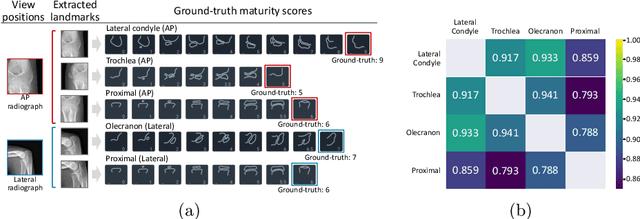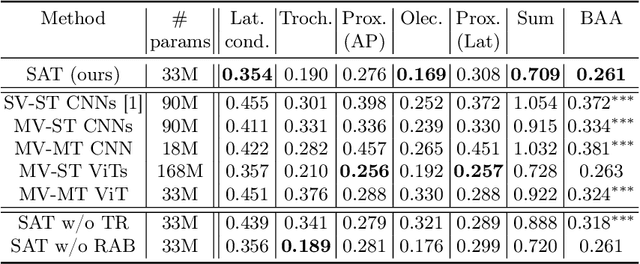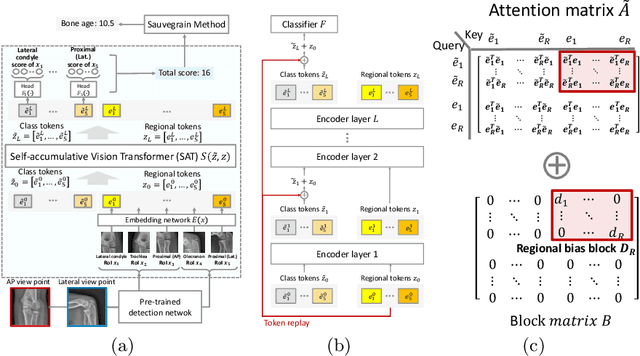Self-accumulative Vision Transformer for Bone Age Assessment Using the Sauvegrain Method
Paper and Code
Mar 30, 2023



This study presents a novel approach to bone age assessment (BAA) using a multi-view, multi-task classification model based on the Sauvegrain method. A straightforward solution to automating the Sauvegrain method, which assesses a maturity score for each landmark in the elbow and predicts the bone age, is to train classifiers independently to score each region of interest (RoI), but this approach limits the accessible information to local morphologies and increases computational costs. As a result, this work proposes a self-accumulative vision transformer (SAT) that mitigates anisotropic behavior, which usually occurs in multi-view, multi-task problems and limits the effectiveness of a vision transformer, by applying token replay and regional attention bias. A number of experiments show that SAT successfully exploits the relationships between landmarks and learns global morphological features, resulting in a mean absolute error of BAA that is 0.11 lower than that of the previous work. Additionally, the proposed SAT has four times reduced parameters than an ensemble of individual classifiers of the previous work. Lastly, this work also provides informative implications for clinical practice, improving the accuracy and efficiency of BAA in diagnosing abnormal growth in adolescents.
 Add to Chrome
Add to Chrome Add to Firefox
Add to Firefox Add to Edge
Add to Edge